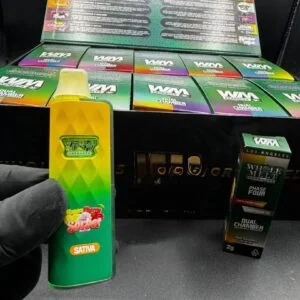KN95 Masks Unveiled: A Comprehensive Seller's Manual for Success
- Crystal Webster
- Feb 3, 2024
- 3 min read
With the ongoing global health crisis, the demand for personal protective equipment (PPE) has skyrocketed. KN95 masks have emerged as one of the most popular choices for effective respiratory protection. As a seller, it is crucial to understand the ins and outs of KN95 masks to succeed in this competitive market. In this comprehensive seller's manual, we will delve into the key aspects of KN95 masks and provide you with valuable insights to navigate through the challenges and attain success.
What Makes KN95 Masks Special?
KN95 masks are designed to offer high filtration efficiency and superior protection against airborne particles, including viruses and pollutants. These masks, which meet the stringent standards of the World Health Organization (WHO) and International Safety Standards, are becoming increasingly sought-after. The key features that make KN95 masks stand out include:
Filtration Efficiency: KN95 masks are engineered to filter out at least 95% of airborne particles, including respiratory droplets carrying viruses or bacteria.
Close Facial Fit: The design of KN95 masks ensures a tight seal around the face, minimizing the entry of external particles. This feature is particularly important in preventing the transmission of infectious diseases.
Comfort and Breathability: Despite their high filtration capabilities, KN95 masks offer excellent breathability and comfort due to their ergonomic design and advanced materials.
Long-lasting Protection: KN95 masks can be used for extended periods without loss of effectiveness. This makes them a cost-effective solution for both individuals and healthcare professionals.
Understanding the Difference: KN95 vs N95 Masks
To ensure you make informed decisions as a seller, it is essential to understand the distinction between KN95 and N95 masks. Although similar in performance, there are slight differences in the regulatory standards and testing procedures. Here's a quick breakdown of the key variations:
Country of Origin: KN95 masks are produced in China, while N95 masks are primarily manufactured in the United States.
Certification Standards: KN95 masks adhere to the Chinese GB2626-2006 standard, whereas N95 masks comply with the American NIOSH 42 CFR 84 standard.
Fit Testing: N95 masks require fit testing to ensure an appropriate seal, while KN95 masks do not mandate this additional step.
U.S. FDA Approval: While KN95 masks are not FDA-approved, they have been authorized for emergency use during the COVID-19 pandemic. N95 masks have been rigorously tested and approved by the FDA.
Choosing a Reliable Supplier
In the competitive market of KN95 masks, finding a trustworthy supplier is paramount. Here are some key factors to consider when selecting a supplier:
Certifications and Testing: Ensure that the supplier's KN95 masks meet relevant certification standards and undergo comprehensive testing for filtration efficiency and fit.
Quality Control: A reliable supplier should have a robust quality control process in place to ensure consistent performance and compliance with safety standards.
Transparent Communication: Effective communication is crucial for a successful business relationship. Choose a supplier who is responsive and provides clear information about their products and services.
Reliable Supply Chain: Assess the supplier's ability to maintain a steady supply of KN95 masks to meet your customers' needs without interruption.
Meeting Customer Expectations
To achieve success as a seller of KN95 masks, meeting and exceeding customer expectations is pivotal. Here's how you can elevate the customer experience:
Educate Customers: Provide detailed information about KN95 masks, including their features, proper usage, and care instructions, through informative blog posts, videos, or FAQ sections on your website.
Offer Assurance: Build trust by offering reliable customer support and addressing any concerns or queries promptly.
Provide Certification and Testing Details: Clearly display the certifications and testing information of your KN95 masks on your website or product descriptions to instill confidence in customers.
Ensure Timely Delivery: Optimize your logistics and shipping processes to ensure prompt and reliable delivery of KN95 masks to your customers.
Conclusion
As the demand for respiratory protective equipment continues to rise, becoming a successful seller of KN95 masks requires a comprehensive understanding of the product and the market. By ensuring the quality of the masks, building strong relationships with reliable suppliers, and exceeding customer expectations, you can establish your authority and gain the trust of your target audience. Keep adapting to the evolving needs and trends in the PPE market to thrive as a KN95 mask seller.


Comments